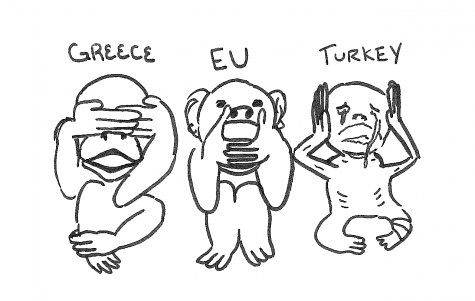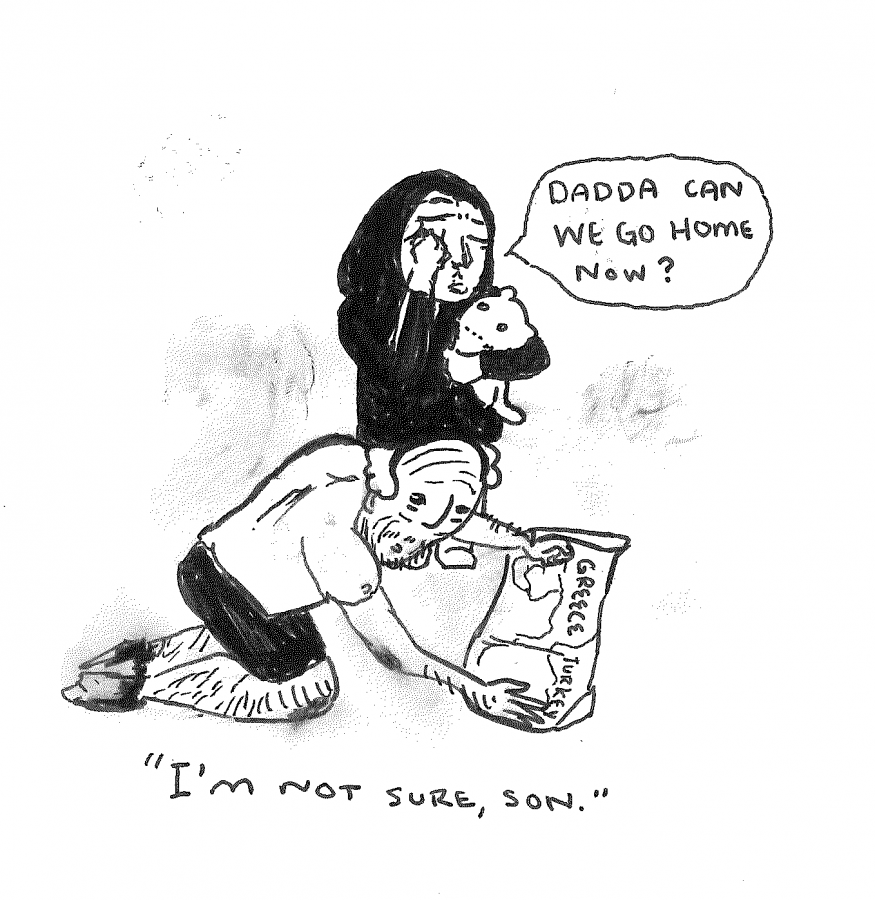The Turkish army suffered mass casualties after a strike in Northern Syria last week, officials said. Many have expressed concerns that this could escalate and trigger direct conflict with Russia.
At least 33 Turkish servicemen were killed and more than 30 wounded in an airstrike in the Idlib province in Syria, during an ongoing battle between the Turkish army and Syrian government forces on Thursday, according to The New York Times.
The attack came several days before a deadline the Turkish army had placed on Syrian government troops to withdraw from reoccupied areas in recent months, according to CNN.
This event has caused even greater concern as the Syrian army, backed by Russian air forces and military advisers, continues to advance north to regain control over its territory lost during the civil war.
Shortly after the attack, Turkish officials said that the airstrike had been carried out by Syrian government forces, despite the fact that Russian jets had been conducting most of the airstrikes in the province in recent weeks, according to The New York Times.
In Istanbul, Turkish protesters were chanting “Murderer Russia! Murderer Putin!” in front of the Russian Consulate on Friday.
“Ongoing escalation around (Idlib) needs to stop urgently. There is a risk of sliding into a major open international military confrontation,” European Union foreign policy chief Josep Borell tweeted. “It is also causing unbearable humanitarian suffering and putting civilians in danger.”
Turkish President Recep Tayyip Erdogan spoke with Russian President Vladimir Putin over the phone on Friday. Both presidents expressed concerns and agreed on the need for “additional measures” to prevent the escalation of the conflict, according to the BBC.
In recent months the Turkish army and Russian military police have already carried out joint patrols in Northern Syria as a part of a de-escalation process.

The possibility of a direct conflict between the two nuclear powers — Russia and Turkey — has raised concerns within the United States government.
According to the U.S. State Department, the U.S. is in contact with Turkish authorities to have more clarity on the current situation on the ground. The State Department also ensured that they stand with their NATO ally, Turkey, and continue to call end to this despicable offensive by the Assad regime, Russia and Iran-backed forces.
The offensive launched by Syrian forces has already forced many Syrians to flee from the Idlib province to Turkey. Nearly 700,000 of the displaced civilians are women and children, according to the United Nations.
President Erdogan accused EU leaders of failing to help Turkey deal with more than three million Syrian refugees and demanded support for Turkey’s military operation in Northern Syria, according to The New York Times.
In an attempt to force other NATO members to support their war efforts, Turkey has opened its borders to tens of thousands of Syrian refugees, letting them seek relief in the country. Many of them are making desperate attempts to cross the border to Greece, often risking their lives.
On Monday, a makeshift boat carrying 48 refugees capsized off the Greek island of Lesbos as the coast guard approached it. Most of the passengers were recovered unharmed, however two unconscious children were taken to a hospital where one of them later died, according to CNN.
However, despite the enormous flow of people to the border due to the Syrian army’s offensive, the Greek government stands firm on their policies surrounding migrants.
“Everything that is happening is horrible, but it has affected Greece by having its land stolen,” Dhani Gjini, a Suffolk freshman from Greece, said.
Greece deployed major military forces along the border with Turkey to prevent an uncontrolled passage. Greece officials announced they would suspend asylum applications for a month and deport all migrants entering illegally, according to The New York Times.
“Turkey, instead of curbing migrant and refugee smuggling networks, has become a smuggler itself,” said the Greek government in a statement, according to The New York Times.
As tens of thousands of refugees are escaping war, they have been exposed to brutal winter weather and the Greek government’s ruthlessness while awaiting asylum. Many feel president Erdogan is using these conditions as an instrument of pressure on the EU to do more.
“He’s trying to say, ‘What happens in Idlib doesn’t stay in Idlib,’”said Aaron Stein, a Turkey expert.
Stein believes that President Erdogan tries to show other European leaders that the problem of refugees could extend far beyond Turkey’s control. As the situation grows more serious, the entire EU may have to deal with the consequences of this complex international conflict.















